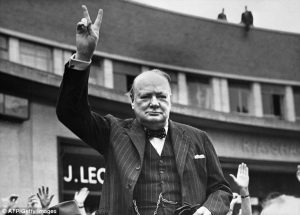Elite’s Power, and Interests in Britain
Family holdings in the family company have gradually become more and more diluted and family members have diversified their investment portfolio, so their particular interest in their company becomes less all- pervasive in relation to their other interests. The historic attachments of such families to their base companies become loosened and their broader interests in the wider corporate system lead many such entrepreneurial capitalists to adopt a business style similar to the finance capitalists. This of course is a further integration for the landed class, this time with the City, focusing on ‘institutional’ shareholdings. Insurance companies traditionally held their assets in the form of government securities and company debentures, but the higher yield which could be earned on ordinary shares encouraged insurance companies in this century to shift the balance of their investments towards such equity holdings. Insurance companies were soon taking a large proportion of new share issues and dominated the market in corporate securities. As a result, the proportion of the population which held shares has become progressively smaller. The “squeezing out of individual shareholders is a result of the increased buying by the various institutional shareholders. Initially, the insurance companies bought into the largest companies, and by 1942 they held about a half of the issued shares of the 30 largest companies.”23
The trend towards institutional ownership is also reflected on the land. For example, by the 1970’s the major ‘institutional’ holders of land were the City institutions. They owned more land than those ‘institutions’ such as the Church of England and ancient universities which owned agricultural, commercial and housing land as well as company shares. “This growth in landownership by financial enterprises continued through the 1970’s, and became a particularly important aspect of large-scale landownership. This created a move away from owner-occupation and towards a modernised version of the traditional landlord/tenant relationship. An increasingly popular pattern is for a financial company to buy land and then to sell bonds and shares in the land to insurance companies and pension funds which stand in the same relation to farming as they do to other businesses.”24 Within these ‘agribusiness’ enterprises the actual farming is delegated to subordinate executives whose managerial style has more in common with manufacturing executives than it has with the old-style farmers.
Those who hold substantial numbers of company shares and those who own the larger landed estates have been brought together into a close unity by the growth of institutional ownership. “These individual property owners are the major beneficiaries of institutional property-ownership, since these institutions operate in such a way as to generate and reproduce the privileges and advantages of the members of the dominant status group.”25
This structure of relationships creates a sharp separation between those who control and benefit from the use of capital and those who do not. Whatever the internal divisions there may be within the elite, they are secondary in importance to their common interest in the continuing success of the big business as a whole. It could be said once more that the traditional outlook and values have been maintained. Furthermore, as we have seen, “the dominant status group- the establishment- has accommodated itself to the creation of business class, and is continuing to be a key mechanism in the articulation of the economy with the political system.”26



